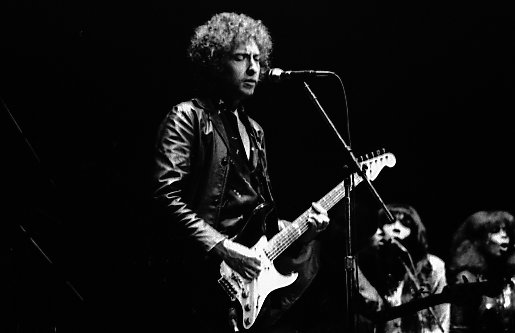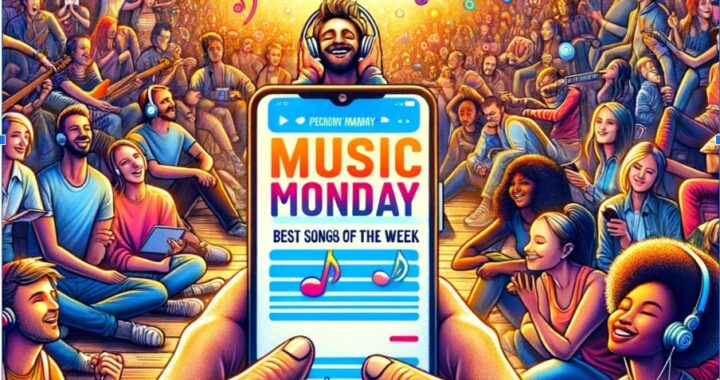Feature: The Advantages of Learning While Incorporating Music
5 min read
Innovative ways that engage students and improve understanding are rising in today’s quickly changing educational scene. Music-based learning has received interest. Music and education go together for more than a pleasant learning environment. It’s a scientifically proven strategy with many advantages. Learning and music may improve memory, cognition, and engagement. This essay explores music-infused learning and its many benefits for students of all ages. Let’s on a musical trip that breaks educational standards and opens new learning possibilities.
The Cognitive Connection: Music and Learning
When music is part of the learning process, it has amazing effects on how the brain works. Scientists have found a strong link between music and improving memory. This gives people who want to remember things better a powerful tool: music. When tunes are woven into what is being learned, they create unique memory cues that make it easier for students to remember facts and ideas. This brain unity is especially helpful when it comes to hard topics or details that are hard to understand. Songs can be used as mnemonics to help you remember things in a way that other methods often can’t.
Music not only helps you remember things, but it also gives your brain a workout. When kids listen to music while learning, different parts of their brains are excited at the same time. The brain controls rhythm, music, and words, which strengthens neural connections. They help you think critically, solve problems, and recognize patterns. This multidimensional mental practice helps people see the whole picture of a subject. When students touch the rhythmic structures of music, they engage their minds in cognitive development.
Learning Through Musical Traditions
Learning through musical traditions opens doors to cultural exploration and historical understanding. Music has long been an integral part of various societies, reflecting their values, stories, and identities. By letting students experience the sounds and beats of different cultures, teachers give them an engaging experience that helps them understand and respect differences. For example, learning traditional African drums not only teaches rhythm and timing, but also shows how music is used as a way to communicate, tell stories, and celebrate in African cultures. By learning about these customs, students can see how different people have lived in different times and places.
For students embarking on the path of integrated music education, finding resources is an important factor. Amidst the demands of coursework and assignments, accessing a reliable and cheap assignment writing service can be a game-changer. Such services are a lifeline for students who need help writing tasks that are well-structured, insightful, and use the power of music. By using these services, students can make sure that their assignments are both academically sound and creatively enhanced with musical aspects. This cost-effective solution empowers students to excel in their coursework.
Fostering Creativity and Imagination
Incorporating music into the learning process is good for more than just the brain; it also helps to spark creativity and thought. Music may spark fresh ideas and problem-solving skills. When students hear different tunes, sounds, and types of music, their minds are encouraged to think in new ways. Such research can help students come up with creative answers. They are able to compare the structure of music with the complexity of the subjects they are studying. Music’s rhythmic and musical patterns can be used as metaphors. They can show new ways to look at even the most abstract ideas and give them life.
Also, music sparks the mind by making an emotional world that goes beyond the ways people usually learn. When students experience the emotional power of music, they tap into their own emotional reserves. Students can express their imagination and think outside the classroom by writing their own melodies. They can find out how the piece makes them feel, or by adding artistic elements to their projects. In essence, music works as a bridge between the logical and the artistic. It encourages learners to explore new areas of their minds and adds a bit of art to their learning experiences.
Case Studies: Music-Integrated Learning
Real-world case studies show how music-integrated learning can change the way people learn in a variety of college settings. The combination of music and learning has been shown to work well in early education. Rhythmic rhythms make math concepts more realistic and real. In the same way, rhythmic patterns in music have been used to help people learn how to say words and pronounce them correctly. Students who listened to songs in a foreign language improved their language skills and had more natural voices. This shows that music can be a bridge to learning a language well.
Traditional and non-traditional learning have both improved with music-integrated learning. In high college physics class, students used musical instruments to learn how sound waves work. Students were able to understand hard science ideas by looking at the frequencies and harmonics. At the same time, they make them love music even more. This helped them learn more about how science works and sparked an interest that went beyond each topic. These case studies show how adding music to a program in a thoughtful way can help students learn more. They can help students make links between different subjects and make the classroom a place of creativity and wonder.
Conclusion
The combination of learning and music in a way that works well is a symphony of benefits that could change the way people learn. Music enhances memory, reasoning, imagination, emotional engagement, and cross-disciplinary learning. Teachers and students discover the many advantages of learning with music. We can create a world where learning is like a beautiful song that sticks with you by realizing that music can capture minds and inspire spirits.
Mary Spears is known for her blogs and articles on major platforms and her deep readership awareness. Her freelance profile is lauded since she understands both her audience and her topics. Mary advises students to work hard to succeed in school.
::: RenownedForSound.com’s Editor and Founder –
Interviewing and reviewing the best in new music and globally recognized artists is his passion.
Over the years he has been lucky enough to review thousands of music releases and concerts and interview artists ranging from top selling superstars like 27-time Grammy Award winner Alison Krauss, Boyz II Men, Roxette, Cyndi Lauper, Lisa Loeb and iconic Eagles front man/songwriter, Glenn Frey through to more recent successes including Newton Faulkner, Janelle Monae and Caro Emerald.
Brendon manages and coordinates the amazing team of writers on RenownedForSound.com who are based in the UK, the U.S and Australia.



